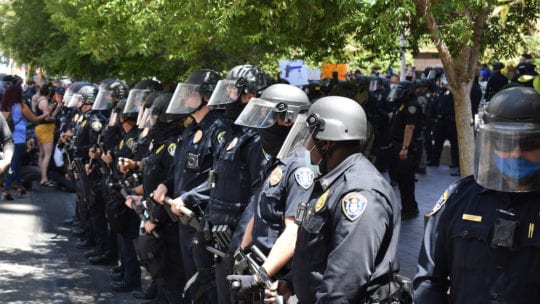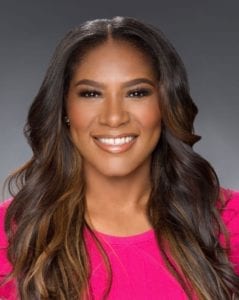
Editor's Note: On June 3, the author of this article, Dwayna Haley, SVP and practice director, brand innovation and impact at Porter Novelli, joined PRNEWS editor Seth Arenstein and Neil Foote, president of the National Black Public Relations Society, on a LinkedIn Live session. They discussed communicators' role in addressing racial inequality, diversity, equity and inclusion in PR. You can watch the full conversation here.
It’s seemingly unbelievable that on top of managing business and communications within a global pandemic we would also experience the unraveling of our country by way of hyper-polarized politics, police brutality, a questionable justice system and of course, racism; but, here we are. Americans are outraged and the pain is palpable. The moment and movement invite careful consideration of how communicators can make an impact. More than ever, your voice and advocacy matter.

Activist Brittany Packnett Cunningham recently said, “The privilege you enjoy comes at someone else’s expense. The privilege that you’re hoarding could be put to good use. It could be used to create space, opportunity, resources and amplification for someone else. Not because they need your saving, but because that’s what you do with what you didn’t earn. It’s not charity, it’s solidarity.”
Friends, it’s time to get uncomfortable in order to make a difference.
As communicators, we have a powerful opportunity (and the accountability) to positively influence behavior change. Through messaging with strategic calls-to-action, brilliant creative and multichannel outreach, we can impact wide-spread sea change in any environment.
Whether you’re operating from agency or brand, our shared purpose within this discipline (in addition to business success) is to do well by doing good. Put something into the world that makes it a better place. It’s certainly what fascinated me about the role we play and why I continue to suit up to help deliver the same.
Today, the world needs us. More important than saying the right thing at the right moment, we need to invoke our shared purpose, leverage our capabilities and credibility as behavior-change agents to hold brands and clients accountable. We need to stand up for the right idea. We must put people before profits. It’s time to advocate for equality, justice and human rights. And yes, to do so for black people.
Unfortunately, this is a black-and-white issue. Life and death. No middle ground. As with any crisis, the solution is found in uncovering and acting upon purpose.
I applaud brands that have quickly assembled powerful content admonishing racism, demanding justice reform and equality. Now what?
The sentiment is appreciated, but my son can’t ride his bike down the street on the strength of your words. This issue requires advocacy backed by action, accountability and sustainable investment. Instead of saying, “I don’t know what to do” or “I don’t know what to say” or even “I don’t know where to start,” there are options:
- Educate Yourself: There are so many reputable organizations and sites that can share the historical view of racism and injustice along with resources on the issues. Anchor your desire to get involved with the facts. Doing so will undoubtedly inspire organic integration with your brand. When problem solving, research and data are critical to our impact.
- When in Doubt, Ask: The troubling issues we’re facing are systemic. The broken system, unconscious and implicit bias and isms were in place long before many of us were born. It’s okay that you don’t have an immediate answer to what appears an insurmountable challenge. Ask. Strike up dialogues with colleagues, partners and friends in the black community. If you look around and there’s no one to ask (especially at the top of your organization), start there.
- Don’t Appropriate, Advocate: It’s critical that brands avoid approaching this moment in the spirit of opportunism. It’s not enough to check a box. Get involved because it’s the right thing to do. And be careful. If your organizational reputation contradicts your timely advocacy, there will be backlash. Be honest, transparent, responsive and attack it head on. Your past doesn’t have to dictate the good you can drive in the future. If by chance your brand history is so troubled that it would deflect or disrupt the mission to advocate, fund efforts with a partner as lead. Don’t look for credit, seek change. And in the meantime, work on fixing brand values. Purpose agencies can help.
- Start Inside: Partner with internal DE&I champions to find solutions to creating a work culture that invites black people to show up whole, rather than playing the role that makes the organization comfortable. When recruiting, partner with organizations like Colorcomm, the National Black Public Relations Society or KLH & Associates. Intentionally build a strong pipeline of diverse talent for consideration.
- Get Involved: From the NAACP to Black Lives Matter to The Innocence Project, there is no shortage of organizations that could benefit from partnership to amplify their message, deliver content and/or donate to the effort. Take a nod from brands like Ben & Jerry’s, which isn’t shying away from the hard work.
One thing about Porter Novelli is our values. We believe diversity, equity and inclusion are moral and business imperatives. We’re not perfect, but we've put action to our values in ways that have supported me personally and professionally. Often that meant operating in extreme discomfort (especially when privilege is the comfortable guide).
This moment requires your discomfort. Your black colleagues, partners, friends and neighbors need your discomfort. It undoubtedly will cost you. But discomfort is fleeting. It won’t remain. As my grandmother, Mable Thompkins, says, “The more you stand, the stronger your legs.” And remember, some of us don’t have the luxury of walking away or sitting this one out.
